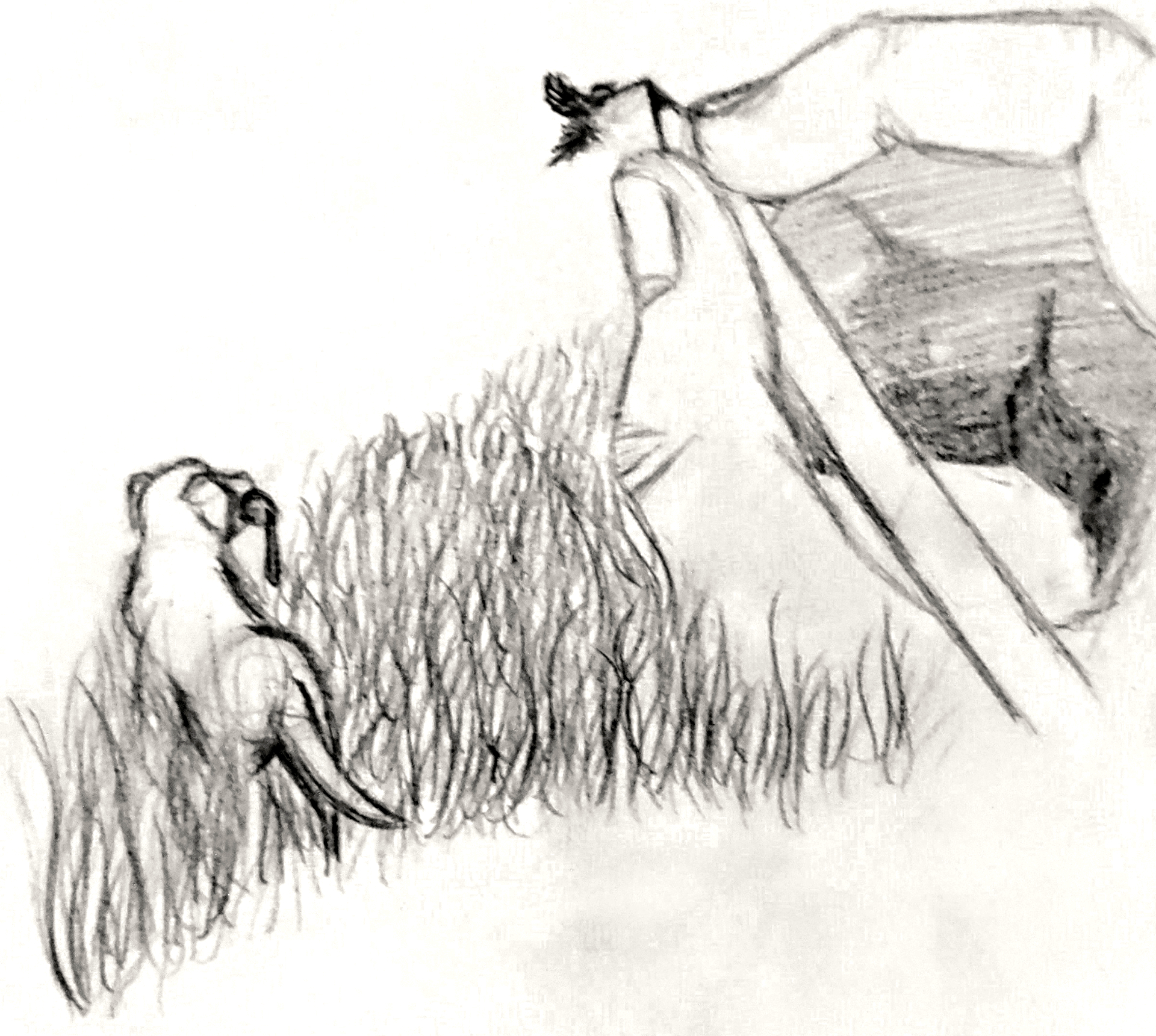Unlike the culture around you, always dragging you down to its level of immaturity, God brings the best out of you, develops well-formed maturity in you.
Romans 12:2 (The Message)
Part of what I do in these essays is write about what I’m experiencing and how I see God’s hand in those experiences and in my life. One of my favorite church memories was an object lesson I shared on a Sunday morning almost twenty years ago. I started the lesson by telling the congregation of my belief that we all have the ability to worship and love God in our own way and that it is implanted in us at conception, just like other skills that come to be seen when the time is right. Then I encouraged my young son Joshua, dressed in his little blue Easter suit, to take some of his first steps ever by walking across the chancel from his mother’s arms to mine. We didn’t teach him to walk, God put that in him, and when the time was right he stepped out from a place of safety toward fulfilling his potential. Joshua is still walking but now the arms he reaches for are his friends and fellow students.
Just last week I took Debbie’s black lab puppy , Gunnar, on his first pheasant hunt. He is a “rammy” field trial dog (ask any upland game bird hunter what that might mean) who can retrieve plastic bumpers based on voice and whistle commands for hours on end. But what would he do when faced with a real bird in an open field with the distractions of other dogs, wind and other hunters? I could write for pages on his transformation that day from energetic puppy to skilled retriever but the fact is he quickly found out what he was born to be. The first time he flushed a pheasant from the snow-covered brush and brought it to me we shared a moment of mutual pride that he was exactly what he was born to be. Snow, shotguns, birds and bounding dogs would be a bit much for the average church chancel to handle but he would love to demonstrate his God given potential for you.
You might say to me “learning to walk is for children” and “any dog can learn to hunt,” and you might be right. But at some time you and I will have to figure out what we were born to be and that is never an easy question to answer and I don’t think it is ever answered completely.
The tricky part of this question for me is how to measure of who we are? What are the criteria? And who are we to emulate? I would suggest the best measure of who we can be is found by abiding in God’s love. Like many of you I undergo challenges and changes that constantly challenge who I am as a child of God. I think the measure of what you are supposed to be is always an internal and eternal measure, not an external ideal.
If you were to determine your potential based on popular culture then what you would become could be defined by a certain salary level, or body type, or status , or mode of transportation. If you are to determine what you were born to be by popular culture you would look at family and magazines and TV shows and sales pitches for things to fulfill your destiny. The problem, you will quickly see, is that definitions set by popular culture are all unattainable and vaporize just as you reach for them.
What is attainable, what is lasting with God’s help, is that we should abide in God’s love which means we can love one another. We can replace blind ambition with personal and professional goals based on an informed conscience of God’s love within us. With God as our guide we can learn to serve with humility and defend all of His children with vigor and resilience. With God’s help we can grow to give generously, beyond what is reasonable in the eyes of others, because God gives to us far beyond any reasonable measure. By God’s plan we can reach a life lived in righteousness and holiness, not by our own actions, but by the redemption provided by Christ’s death for our sins. What you and I are born to be are God’s hands and feet on this earth. Your potential and my potential should only be based on what God has given us to do. There can be no greater calling.
I look forward to watching Joshua walk toward a career in medicine or business or wherever God leads him. I look forward to many more outings with Gunnar as he displays the skills Debbie has honed and the instincts God has given him. And when I look at the changes and challenges that face me I am reassured by knowing God knows who I am and what I will be.
I have a colleague with a coffee cup that reads “growing older is inevitable but maturing is a choice.” Perhaps I need a cup that reads “growing older is inevitable but growing to maturity in God is a choice” to remind me of what I was born to be.
Now, if you will excuse me I need to look up some pheasant recipes.
In Christ,
Phil



Michael PetersonAugust 22, 2020 10:07 am
One of the ideas in the first paragraph is that we are born in a certain way (eg, we might be born as a little boy, or, alternatively, a hunting dog). The manner of being into which we are born affects what we could and should do. For example, Joshua can become a doctor (and find great meaning in the process), but it is unlikely that Gunnar the Dog would have much inclination to practice medicine.
This idea resonates with me fairly strongly. In fact, it is one of my favorite ethical ideas! As far as I can tell, it is at the root of Aristotle’s ethical argument, and can be summed up in the Latin phrase “Agere sequitur esse”–“Action follows being”. The way a thing is determines how that thing can (and should) act.
This ethical argument is precisely what interests me about psychology. The world is a place of action. We must act. It is preferable if we act well. So, what should we do? It seems to me that if we want to know how a human being should act, then we might do well to diligently study what a human being is. Of course, the human being can be studied at numerous levels of analysis– the physical, chemical, biological, sociological…and also psychological. And the psychological is particularly relevant because our soul, our psyche, is what differentiates us humans from everything else in the world. The psyche is the specific difference that differentiates our species form any other species of animal.
I’m also going to say that I am delighted to hear a college professor talking about God, because in my experience, that is a relatively uncommon phenomenon these days.